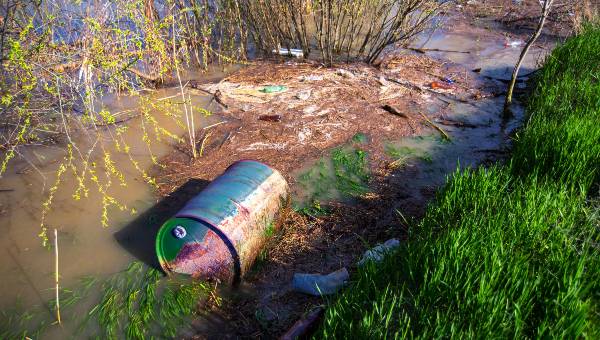If your business has caused pollution, report a pollution incident.
What you can report
In Victoria, it's illegal to dump, leave or bury any kind of waste at a location that is not licensed to accept it. This includes public and private land.
Contact your local council(opens in a new window) to report:
- household waste, such as TVs, appliances, furniture or mattresses
- dumped waste on residential or council-owned land.
You can report other types of dumped waste and rubbish to us, including:
- industrial waste
- construction and demolition materials, including asbestos
- garden waste and soil
- tyres
- chemical waste
- packaging
- old cars
- oils and paints.
As with other crimes, people who dump waste do not want to be seen. Look out for trucks or trailers moving waste at odd hours, or in places where you would not expect them. Any information you can give us – such as a number plate – can help our investigation.
How to report illegal waste dumping to EPA
Report illegal dumping online, or call our 24-hour pollution hotline on 1300 372 842.
What to include in your report
The more information you can give us, the quicker we can respond. When making your report, tell us:
- the location of the dumped waste
- what waste has been dumped and how much there is
- when the waste was dumped
- if it has happened before
- if you saw who dumped it or have information that may help to identify the dumper.
You can report anonymously, but if you do we cannot send you updates about your report. We also cannot contact you if we need more information.
What happens next
After you have made a report, we send you a confirmation email with a reference number.
We conduct investigations to identify and prosecute those responsible. Each case is different, but investigations can involve:
- securing the site
- scientific sampling and testing
- gathering evidence from local witnesses
- looking at evidence from other investigations.
If we have enough evidence, we can fine or charge the dumper. We also make the dumper clear the waste, where possible. If they are unable to meet removal standards, we clear the waste and get them to cover the cost.
Even if we cannot identify the dumper, we may co-ordinate with the landowner to clear the waste. The information may also inform other investigations.
Cost and impact of illegal waste dumping
Instead of paying to dispose of waste safely, some people or businesses choose to pollute the environment and make everyone else pay. In many cases, the cost of investigating and clearing dumped waste is just the beginning.
Some dumpers challenge our enforcement actions in court or at the Victorian Civil and Administrative Tribunal (VCAT). This is their right. This cost dependents on the length of the case. The longer the case, the higher the cost.
Other dumpers structure their businesses so that they are unable to pay. They transfer assets and choose bankruptcy to avoid paying for their actions.
There are costs other than financial. The impact on our community can be ongoing in many forms. For example:
- contamination from dumping can devastate local ecosystems and take years to remediate
- dumped tyres are a fire hazard that put whole communities at risk
- dumped asbestos is a health risk to anyone exposed to the dust, long after it's cleared
- dumped waste can impact our community long after the waste is gone.
When illegal operators dump waste, they pocket the waste levy. This levy is intended to cover the safe processing of the waste. This undermines legitimate businesses that manage waste legally. In this way, each load of dumped waste makes safe disposal harder.
In Victoria, waste operators collect data on the hazardous waste they receive. We use the data for future planning and to understand trends in Victoria’s waste needs. This data matters. When it's incomplete we are less able to plan and reduce our future environmental impact.
Learn more about dumped waste.
Updated


